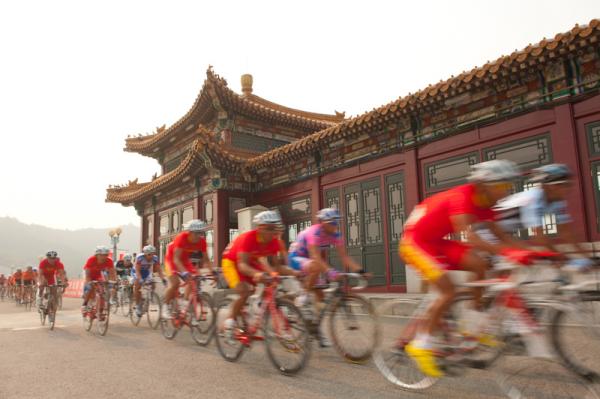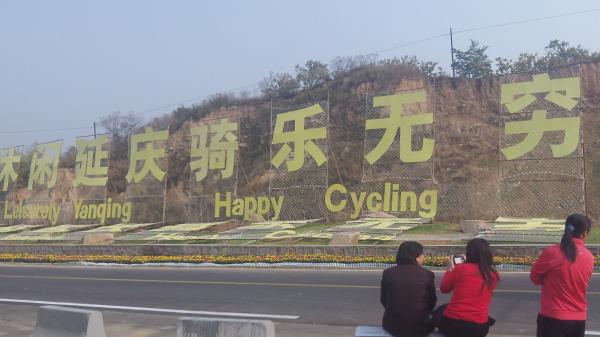No Clenbuterol sandwiches for riders in China
Tour of Beijing organizers took care of the pros


If a rider were to test positive for Clenbuterol at the Tour of Beijing, it won't be possible to blame the food provided by the organization.
"We have asked chicken for the sandwiches the staff give the riders after each stage", a very reliable source told Cyclingnews.
Such a measure is perhaps useless or a luxurious detail but organizers have tried to ensure there is "zero risk" for the first edition of their race.
China is not immune to scandals about pork and beef contaminated with Clenbuterol, a forbidden hormone which is used to develop muscle mass, both in veterinary and sport department. According to the Shanghai Food Safety Commission, there were 18 outbreaks of food-related Clenbuterol poisoning between 1998 and 2007. Earlier this year, China's biggest meat processor recognized the drug as being addictive for his pigs. In 2010, Radioshack's Fuyu Li, now the Chinese national coach, suggested his positive test for Clenbuterol might have come from Chinese food.
Taking all this into account, Tour of Beijing organizers tried to give as much comfort as possible to the riders.
The new WorldTour event was launched indeed following criticism from teams (regarding the proposed radio ban in class 1 races) and some riders' complaints (pollution, visa difficulties, etc).
In the two nights the caravane spent out of the centre of Beijing, in Mentougou and Yanqing, the hotel had been told to serve a more Western-style meal than what they were accustomed to providing.
Get The Leadout Newsletter
The latest race content, interviews, features, reviews and expert buying guides, direct to your inbox!
"It's very important for us the riders feel good," Alain Rumpf told Cyclingnews. The director of Global Cycling Promotion, the company related to the UCI and the Tour of Beijing's organizer, says they "took some inspiration from the Tour Down Under," the other WorldTour race far from Europe.
For that reason, the riders flew in business class and slept in five star hotels in Beijing, the InterContinental Beichen and the China National Convention Center. The two nights they spent out of the city were due to the risk of a lengthy transfer by car from the finish to the hotel. However, as the local authorities approved an efficient system of convoy, the caravane might go back to the standing hotels every night next year.
Last but not the least, Tour of Beijing offered $400,000 in prize money, including $42,500 for the general classification winner and $17,000 for each stage winner.
"The local authorities expected an even higher prize money but our scale might be the fourth biggest in the world after the three grands tours," Rumpf said. "Moreover, prize money is not something as meaningful in cycling as in some other sports. In fact we preferred to use our budget mainly to provide the riders the best safety and comfort conditions."